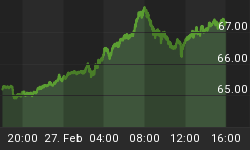It's been a strange couple of weeks. US stocks are not far from all-time records, both nominally and adjusted for inflation. Home prices are soaring - up 33% y-o-y in the Bay Area, to take just one of many possible examples. A casual observer might assume that things are going great.
But one level down on the headline ladder it's a very different story. The list of ominous events and trends has suddenly grown a lot longer. Among the bombs that went off last week:
Detroit declares bankruptcy
For years, analysts have been looking at the balance sheets and pension funds of dysfunctional entities like California, Illinois, Chicago, Detroit, and Oakland and wondering how much longer they could con the markets into believing that they were in any way capable of paying off their debts or making good on their pension obligations. Last week the first domino fell, as Detroit declared chapter 9 bankruptcy. The legal wrangling has just begun but initial bargaining positions have the city trying to eviscerate pension benefits and force massive haircuts on muni bond holders. If they succeed even partially, then the hundred or so other functionally-bankrupt cities may see this as the path of least resistance. The result: Turmoil in the muni market, which is generally considered a near-risk-free cash equivalent. See Avalanche of city debt downgrades and eventual bankruptcies coming up.
Corporate revenue growth stalls
Google and Microsoft both reported disappoinging revenue growth and their stocks tanked. Revenue is harder to fake than earnings, so it's a more reliable indicator of big trends. Tech bellwethers reporting weak revenues implies that the economy is itself weaker than we've been led to believe. And corporate profits, which have provided much of the fuel for rising equity prices, can't keep rising if revenues plateau. See The party may be over for tech stocks and Earnings season starting to look like a disaster.
Portugal and Spain descend into chaos
Both countries are finding it impossible to cope with life in a relatively-strong-currency regime. Unemployment is at capital "D" depression levels, home prices are plunging, voters are restless. Portugal's government can't pull together a working coalition, and the most popular party opposes the continuance of austerity. But the alternative to austerity is an exit from the eurozone. See Portugal political crisis: no end in sight.
Spain's leaders, meanwhile, seem to have reacted to the economic crisis by trying to steal as much as possible while they could get away with it. Apparently they went to the well a few too many times and now the resulting scandal has reached all the way to the top. With much of the existing government implicated - but still in power - it's not clear who will be left to do whatever it is that should be done about the economy. See Spain: scandals, lies, graft, and kickbacks
There's more, including massive, insanely ill-timed layoffs in Greece and the IMF calling China's policies "unsustainable". But all of it points to slowing - and maybe negative -- growth in the US in the coming year, which would make stock and real estate bubbles seem, in retrospect, a bit out of place.















